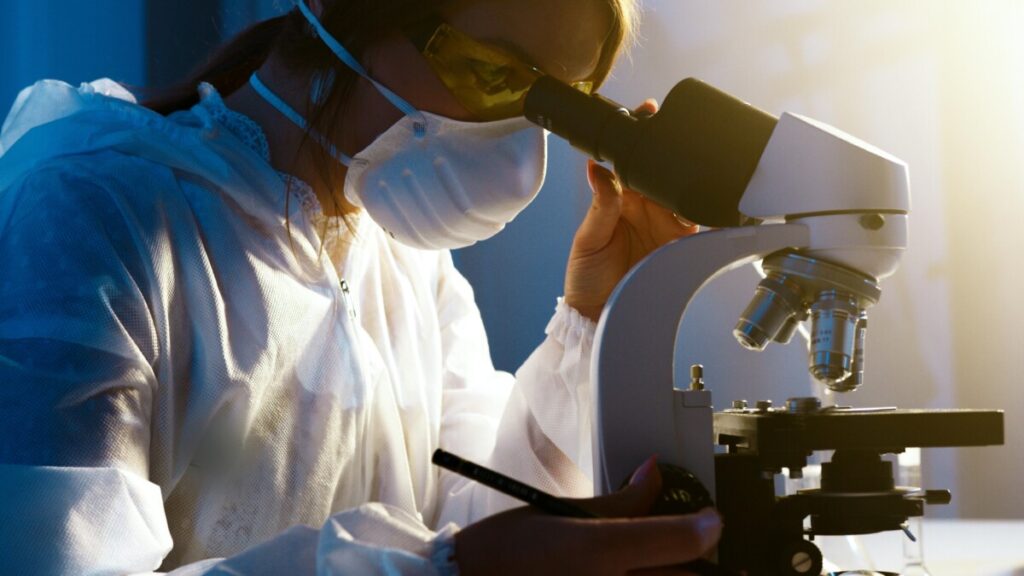Biotechnology and Bioinformatics

Biotechnology and bioinformatics represent dynamic fields at the forefront of modern scientific innovation. This article provides an in-depth overview of these two interconnected disciplines, exploring their definitions, historical context, applications, ethical considerations, and future developments.
Definition of Biotechnology and Bioinformatics
Biotechnology involves the manipulation of living organisms or their systems to develop useful products or processes. Bioinformatics, on the other hand, is the application of computer science and technology to the management and analysis of biological information, particularly in genomics and other areas of molecular biology.
Importance in Modern Science
The significance of biotechnology and bioinformatics in contemporary science cannot be overstated. These disciplines play crucial roles in advancing healthcare, agriculture, industry, and environmental sustainability.
Brief History of Biotechnology and Bioinformatics
Biotechnology has ancient roots in practices like fermentation and selective breeding, but modern biotechnology emerged in the mid-20th century with the discovery of DNA structure. Bioinformatics, a relatively newer field, gained prominence in the late 20th century as advances in DNA sequencing and computing technology converged.
Biotechnology
Explanation of Biotechnology
Biotechnology encompasses a wide range of techniques, including genetic engineering, recombinant DNA technology, and cell culture. These methods find applications in diverse fields such as medicine (pharmaceuticals and gene therapy), agriculture (genetically modified crops), and industry (bio-based materials and biofuels).
Applications in Different Fields
Biotechnology’s impact extends across various sectors, including medicine (insulin production using genetically modified bacteria), agriculture (resistant crop varieties), and industry (enzyme production for industrial processes).
Ethical Considerations and Controversies
The ethical landscape surrounding biotechnology is complex, involving concerns about genetic manipulation, environmental impacts, and access to biotechnological advancements. Controversies often arise in areas such as genetically modified organisms (GMOs) and gene editing technologies.
Bioinformatics
Explanation of Bioinformatics
Bioinformatics integrates biological data with computational tools to analyze complex biological systems. It plays a crucial role in genomics, proteomics, and systems biology, allowing researchers to manage and interpret vast datasets.
Role of Computer Science and Technology
Advancements in computing technology have been instrumental in the growth of bioinformatics. Computational tools enable the analysis of large-scale biological data, aiding in the understanding of genetic codes, protein structures, and complex biological networks.
Applications in Biology
Bioinformatics applications include genome sequencing, protein structure prediction, and systems biology, facilitating a deeper understanding of biological processes and aiding in drug discovery and personalized medicine.
Challenges and Limitations
Despite its successes, bioinformatics faces challenges such as data integration, standardization, and the interpretation of complex biological information. Overcoming these hurdles is essential for further advancements in the field.
Integration of Biotechnology and Bioinformatics
Collaboration between Biotechnology and Bioinformatics
The synergy between biotechnology and bioinformatics is evident in research and development. Integration facilitates efficient data analysis, enhancing the design and optimization of biotechnological processes.
Examples of Successful Integration
Successful examples of integration include the use of bioinformatics in designing personalized medicine based on individual genomic profiles and optimizing the production of bio-based materials through computational modeling.
Potential for Future Advancements
The collaboration between biotechnology and bioinformatics holds promise for future advancements, including more precise genetic engineering, targeted therapies, and sustainable solutions for food and energy production.
Impact of Biotechnology and Bioinformatics
Advancements in Healthcare and Medicine
Biotechnology has revolutionized medicine, leading to the development of vaccines, gene therapies, and personalized medicine. Bioinformatics contributes by analyzing vast datasets to identify disease markers and optimize treatment strategies.
Improvements in Agriculture and Food Production
Genetically modified crops, developed through biotechnology, contribute to increased crop yields and resistance to pests and diseases. Bioinformatics aids in crop genomics, allowing for the selection and modification of desirable traits.
Contributions to Environmental Sustainability
Biotechnological solutions, such as biofuels and waste treatment technologies, contribute to environmental sustainability. Bioinformatics plays a role in optimizing these processes for maximum efficiency.
Economic Impact and Job Opportunities
The biotechnology and bioinformatics sectors contribute significantly to the economy, creating job opportunities and fostering innovation. The demand for skilled professionals in these fields continues to grow.
Ethical Considerations
Controversies Surrounding Genetic Engineering
Debates over genetically modified organisms and gene editing technologies raise ethical concerns about unintended consequences, environmental impact, and long-term effects on ecosystems.
Privacy Concerns in Personal Genetic Data
The use of personal genetic data in research and medical applications raises privacy concerns. Striking a balance between advancing scientific knowledge and protecting individual privacy is a challenge.
Regulations and Policies
The development of regulatory frameworks is crucial to ensuring the responsible application of biotechnology and bioinformatics. Policymakers must address ethical considerations while fostering innovation.
Future Developments and Challenges
Potential for Further Advancements and Breakthroughs
The integration of biotechnology and bioinformatics holds the potential for groundbreaking discoveries, including precision medicine, personalized agriculture, and sustainable solutions to global challenges.
Challenges in Funding and Research Support
Sustaining progress in biotechnology and bioinformatics requires continued funding and research support. Addressing these challenges is essential for driving innovation.
Collaboration and Communication
Effective collaboration between biotechnologists, bioinformaticians, and other disciplines is vital for addressing complex scientific challenges. Improved communication channels will facilitate knowledge exchange and interdisciplinary research.
Ethical and Social Implications
As biotechnological advancements continue, society must grapple with ethical and social implications. Open dialogue and ethical considerations are necessary to navigate the evolving landscape responsibly.
Conclusion
Biotechnology and bioinformatics represent a powerful alliance that has transformed and continues to shape modern science. From healthcare to agriculture and beyond, these fields offer unprecedented opportunities and challenges. As we navigate the ethical considerations and push the boundaries of scientific discovery, the potential for continued growth and advancements in biotechnology and bioinformatics remains limitless.
https://fiscalfitnessflow.com/index.php/2024/04/15/quantum-computing-potential-to-revolutionize-technology/
https://www.ncbi.nlm.nih.gov/
FAQs
Q: What is the difference between biotechnology and bioinformatics?
A: Biotechnology focuses on using living organisms and systems to develop products and technologies, while bioinformatics involves the use of computational tools to analyze biological data.
Q: How do I pursue a career in biomedical research?
A: To pursue a career in biomedical research, you can consider studying biotechnology with a specialization in areas related to biomedical research or enrolling in a bioinformatics program that provides training in analyzing big data in the field of biology.
Q: What are some common specializations in the field of biotechnology?
A: Some common specializations in biotechnology include molecular biotechnology, industrial biotechnology, synthetic biology, and bioinformatics in biotechnology.
Q: How can I find scholarship opportunities for studying biotechnology or bioinformatics?
A: Many universities and organizations offer scholarships for students pursuing degrees or programs in biotechnology or bioinformatics. You can explore scholarship options through university websites, research institutions, and specialized scholarship databases.
Q: What is a typical M.S. degree program in biotechnology like?
A: A typical Master of Science degree program in biotechnology includes coursework in areas such as biotechnology research, biotech industries, bioinformatics tools, and specialized topics based on the chosen specialization.








